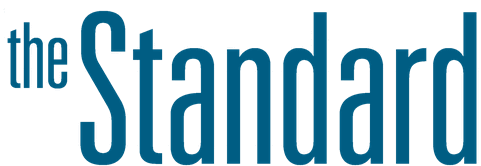We answer your questions about QA Everyday and Learning Plans
As a nurse, you have a professional obligation to maintain and enhance your competence throughout your career. That’s why we have developed QA Everyday, a self-assessment program that helps you reflect on your practice and plan your learning goals. The beginning of the year is a great time to revisit your QA Everyday self-assessment.
Here, you will find answers to some of the most common questions about QA Everyday, such as what it is, how to do it, and why it matters. Whether you are a new or experienced nurse, working in any setting or role, QA Everyday can help you grow as a professional and provide safe, effective and ethical care. If you have any questions that are not answered here, please feel free to contact us. We are here to support you in your QA journey.
What are QA Everyday and my Learning Plan and why should I do it?
QA Everyday is a self-assessment of your practice that you perform on an ongoing basis. It’s a way to reflect on how you improve and support safe care. This opportunity for reflection can help give perspective on your practice environment, the needs of your clients and how you can continue to grow as a nurse.
QA Everyday includes two parts: practice reflection and your Learning Plan.
Practice reflection includes responding to self-searching questions, which you can find on our website. These can help you identify opportunities for growth.
Your Learning Plan is where you identify and track at least two clear goals and describe the activities you will do to achieve them. Your Learning Plan shows how you will maintain your competence as a nurse. You need to update your Learning Plan regularly and keep it for two years. This is a legal requirement.
Can I see examples of practice reflection and Learning Plans to model my activities after?
We have various resources to support you with your QA Everyday activities and your learning needs.
You can check out our website for examples of Learning Plans for nurses in different roles and settings, such as:
You can also access our guide to self-assessment, which includes tips on how to develop and implement goals and how to align them with the Code of Conduct.
Thanks for those resources, but I still struggle to set new goals. Any additional advice?
This can happen, especially when you’re caught up in your daily routine or you’ve been doing your job for a long time.
In these situations, you can also lean on a trusted colleague or manager for feedback. They can tell you what you do well (you may take some of those strengths for granted) and areas where you can develop too. They might be aware of development opportunities that you haven’t noticed. That fresh set of eyes can help you see your opportunities in a new light.
Is CNO going to check my learning plan?
QA Everyday is distinct from QA Assessment. QA Assessment happens twice a year, and that’s where CNO randomly selects a certain number of nurses to review their activities. If nurses are selected for QA Assessment, they are notified by email.
QA Everyday is a responsibility of all nurses, but CNO doesn’t review all activities. Only the nurses who are selected for QA Assessment submit their Learning Plan and complete other activities.
What if I change roles in the middle of the year, or my goals are no longer as relevant as they once were?
This is understandable! The needs of your patients and clients, your practice setting and your career can evolve, and so can your Learning Plan.
Think of it as a living document. It reflects a moment in time, but you can update it too – that's why it’s so important to reflect on an ongoing basis and put the “every day” in QA Everyday.
Where can I look for more information?
Updates to CNO’s QA program will be available on our website. We also will notify you of any changes in The Standard, and on Facebook, X (formerly Twitter), LinkedIn and Instagram.


